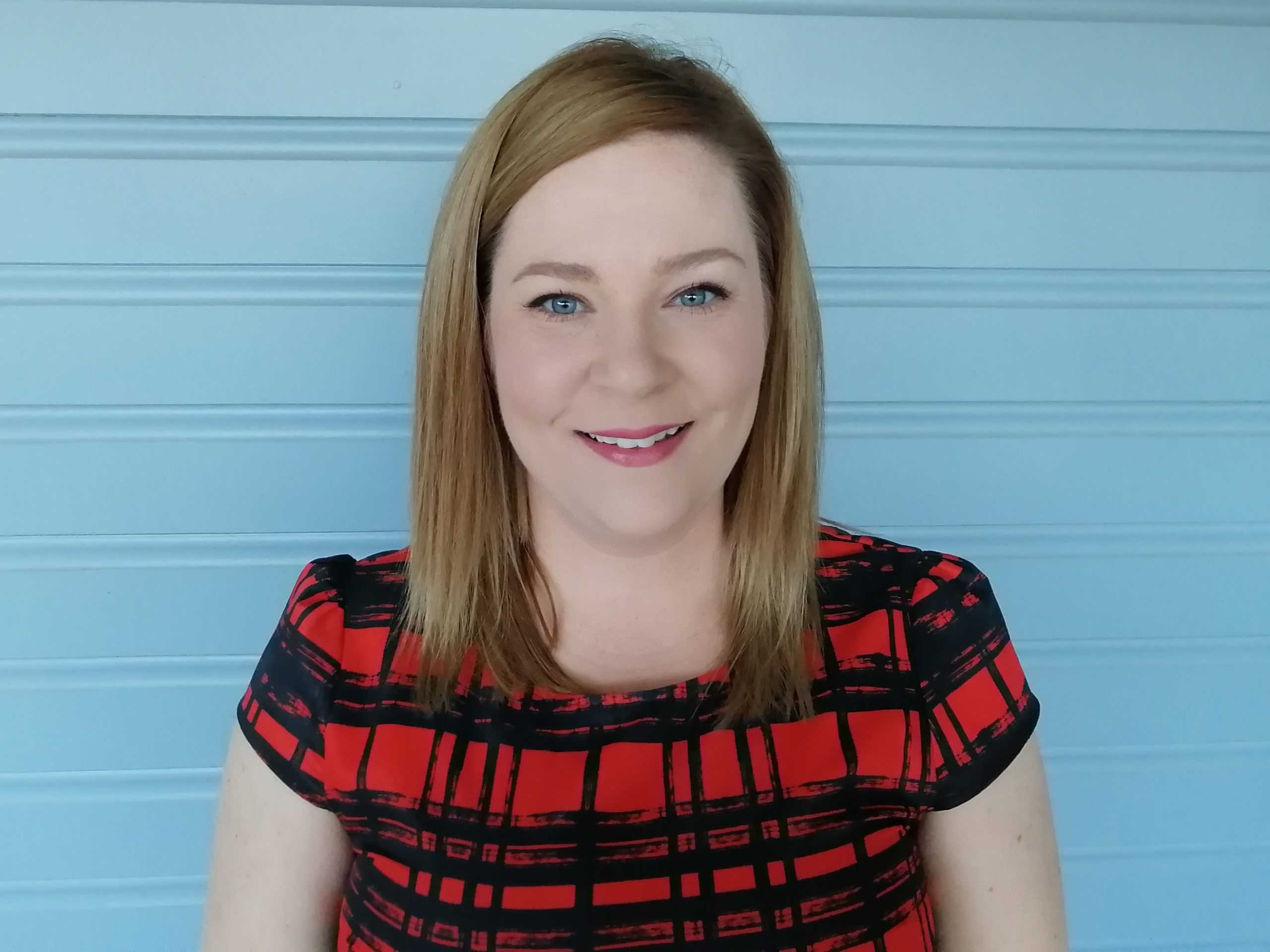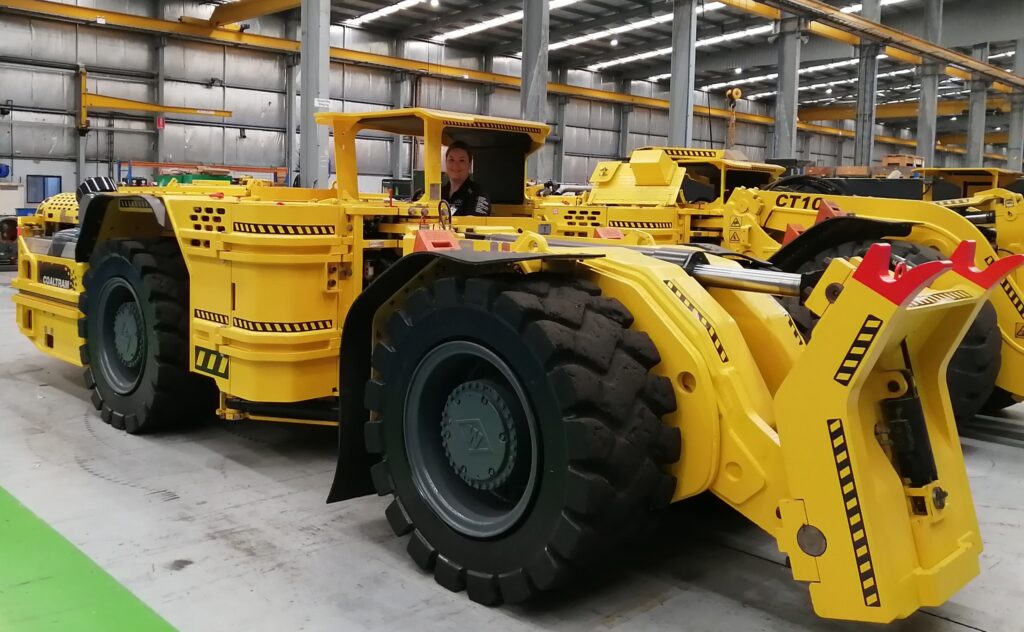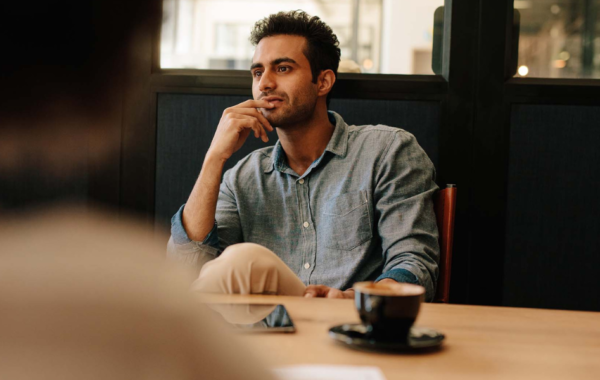
Catherine Williams, HR Manager at PPK Mining Equipment, knows the power of continual learning
She grew up dreaming of being a journalist, but a desire to work closely with people soon drew Catherine Williams to a career in human resources. We sat down to chat with the PPK Mining Equipment HR Manager about how embracing uncertainty and encouraging growth and development in others has helped her flourish in a new role during a pandemic.
Can you tell us about PPK and your role?
I stepped into the role of HR Manager at PPK Mining Equipment in January of this year. Our side of the business looks after repairs, maintenance and overhauls of mining equipment and tooling, so it’s a dynamic trades-based workforce. We’ve got about 150 employees across three sites in New South Wales, and I look after our HR function and also the workplace health and safety and compliance elements for the mining equipment business. Our corporate group headquarters are in Queensland, and I was lucky enough to squeeze in some site visits up there and across NSW before the pandemic hit!
What does a typical day look like for you at the moment?
Every day is different, and at the moment COVID influences that heavily. Currently I start my day by checking in on what’s changed overnight that might affect our sites, making sure we’re keeping across those rapid changes in health and safety advice. I’ll check in with colleagues across our sites and write up a to-do list for the day that balances the responsive things that pop up with project-based work like employee-engagement strategies, policy review, keeping up with changes in legislation or developing training workshops.
What challenges did you face during lockdown?
We are an essential service, so for us lockdown presented a unique challenge. The majority of our workforce are trades-based – doing work that simply can’t be done from home – so we had to rapidly navigate how we could keep working safely on site at a time when most of the information out there from government and industry was focused on remote-working. We had to figure out a lot of this stuff for ourselves! It’s interesting now, four or five months later, seeing a shift in focus towards returning to workplaces and opening up. All the public information is only now starting to cover what we were doing months ago.
How did you manage that kind of uncertainty?
We really tried to keep things simple and follow the same methods we would for any emergency response. So it was asking questions like ‘can we stay open?’, and ‘if we do stay open, what do we need to do to make sure everyone’s safe?’. It’s really about taking a step back, having a look at the risks, responding to them and then evaluating our response continually. We had to really understand our unique circumstances and develop a COVID response plan that matched our situation. Operating in the ‘unknown’ has been a big adjustment for all of us; I would never have guessed six months earlier that I’d be worrying about whether we had enough toilet paper for our employees! And it’s been a time that’s called for creative solutions, too. We were able to source sanitiser from distilleries when supplies were low in the normal supply chain, which was vital for keeping our employees safe.

What kinds of challenges did you face from a HR perspective, particularly?
Again, it was managing that uncertainty. So of course our employees want to know what’s going on now, but they also want to know what things will look like in 12 months. We’d love to be able to roll out a clear 12-month plan for this, but nobody knows how things will play out, globally! And at the start I was new to the role, a new HR manager that didn’t have that rapport with everyone yet. So I was still building that rapport while communicating some really important things. And that’s where trying different strategies was really important, so using video messages to replicate the face-to-face communication our employees were more used to was a great way to become a familiar face in addition to emails and newsletters. Usually I’d be getting out there to our sites doing ‘toolbox talks’ and talking to our employees, even just getting out for a drive and a chat. Things are different right now, but we’re making it work! Long term I think we’ll see some great benefits in complementing our traditional methods with online learning and other innovations.
Let’s talk about some more traditional HR things briefly now. What do you think are the most important employee benefits and how have you seen this change over your career?
Traditionally I think employee benefits were often seen as a ‘list’, so it was very much ‘come work for us because we offer you XYZ and a gym membership.’ But employee benefits are about so much more than that. They’re not just about what helps you weigh up whether to join one company or another (although they have a role in that, too!), it’s more about the kinds of things that make you want to stay. So it’s really more about the whole employee experience, things like encouraging clear and open communication and setting clear expectations, fair remuneration, being encouraged to learn and develop, learning about healthy lifestyles, having a good work-life balance. Those kinds of cultural elements are more critical than your traditional list of benefits that a lot of employers offer because they don’t just impact the employee, it flows on to their families and their communities. And that’s what I’m seeing at PPK, too. We’re really focused on what we can do to make our employees feel happy at work. What do they need to be less frustrated? What do they need to get their job done?
What training and resources can you recommend for aspiring HR professionals?
Continuous professional development is my recommendation, not only for HR professionals, but anyone in the workplace. Seeking that continual learning can help you remain relevant in your field and keep pace with our fast-changing world. And while it can be challenging to balance work, family and study at times, it’s definitely possible and the benefits are worth it. For me, online study works well as I have young kids and work full-time, so the flexibility allows me to study at whatever time suits me, such as listening to an audio-lecture while driving to work. There’s so many different options coming out nowadays, which is exciting, so my recommendation is to figure out what will work for you and give it a go!
Who or what inspires you?
At the moment I draw inspiration from the work of Tiffany Hall. She started in martial arts but is doing some really interesting things in all kinds of fields. Her work features on the podcast Crappy to Happy, which is fantastic and she has a really great TED talk called ‘After baby, don’t bounce back. Bounce forward!’, which I’d recommend to any working mum! I’ve also adopted a quote of Richard Branson’s as my ‘HR mantra’: ‘Train people well enough so they can leave, treat them well enough so they don’t want to.’ I always come back to this philosophy when I look at what we want to be doing as an organisation.
What’s your fave restaurant or café in Newcastle and why?
I can’t go past Meet as my favourite spot. It’s a Brazilian barbecue restaurant (churrasco-style) with a great atmosphere and sensational food! I also recommend Lovedale Smokehouse for its produce and beautiful setting in the Hunter Valley.
_ _
GWG’s Senior Consultant Alissa Bower had the pleasure of placing Catherine in her role. If you’re looking for a dynamic HR professional to take your organisation to the next level or are seeking a new position, reach out to Alissa today on 0411 043 537 or email [email protected].



